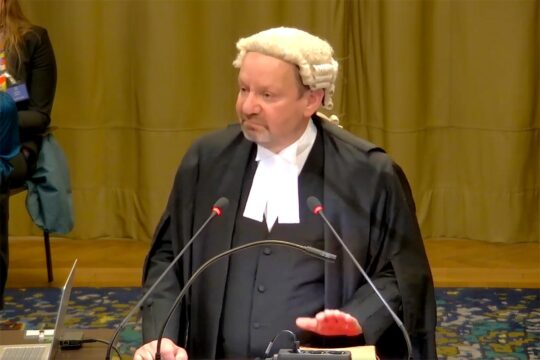Poland's right-wing dominated parliament on Friday recognised as "genocide" a massacre of 100,000 Poles by Ukrainian nationalists seven decades ago, in a move that quickly drew criticism from Kiev.
"The victims of the crime committed in the 1940s by Ukrainian nationalists were not duly commemorated, and the mass murder was not defined as genocide in accordance with the historical truth," said a resolution adopted by 432 lawmakers in the 460-seat parliament.
Ukraine has refused to recognise the crime as genocide and its President Petro Poroshenko on Friday to expressed his "regret" over the Polish move, warning it could be used against his crisis-hit country.
Between 1942 and 1945, members of the Ukrainian Insurgent Army (UPA) hacked Polish victims to death and drowned women, children and the elderly in wells in the Volhynia region of what is now northwest Ukraine.
The UPA's main objective was to win Ukraine's independence by ousting Nazi and later Soviet occupiers and to clear Poles from territories that were historically Ukrainian land.
The killing provoked bloody reprisals by Polish partisans grouped in the anti-Nazi and anti-Soviet Home Army (AK). They killed 20,000 Ukrainians.
Friday's resolution also recognises these crimes saying: "Nor can one dismiss or downplay acts of Polish revenge on Ukrainian villages, during which civilian populations also perished."
It also "expresses Parliament's respect for and gratitude to Ukrainians who risked their lives to save Poles".
Poroshenko, meanwhile, invoking the teachings of late Polish-born pope John Paul II, called on people to "forgive and ask for forgiveness" while cooperating in order to "determine all the facts of this tragic page of our joint history".
The so-called Volhynia massacre was shrouded in silence during the communist era of 1945-1989, with regime authorities in Warsaw wanting to maintain ties with Ukraine, a Soviet republic until 1991.
But memory of the crime is etched deep in Polish national consciousness.
Friday's resolution reverses a 2013 decision by liberal lawmakers that stopped short of calling the massacre a genocide.
In 2013, the then governing liberals adopted a softer version of the resolution to keep relations with Ukraine amicable as it moved closer to the European Union.
The more cautious wording called the massacre "ethnic cleansing characterised by signs of genocide".
But Poland's powerful right-wing leader Jaroslaw Kaczynski has long lobbied for the crime to be recognised as an outright genocide.
Although he holds no cabinet post, as the leader of the governing populist Law and Justice (PiS) party Kaczynski is widely regarded as the government's real powerbroker.
The PiS scored and unprecedented majority in elections last October on an anti-migrant and populist spending platform, relegating the liberal Civic Platform to the opposition.


